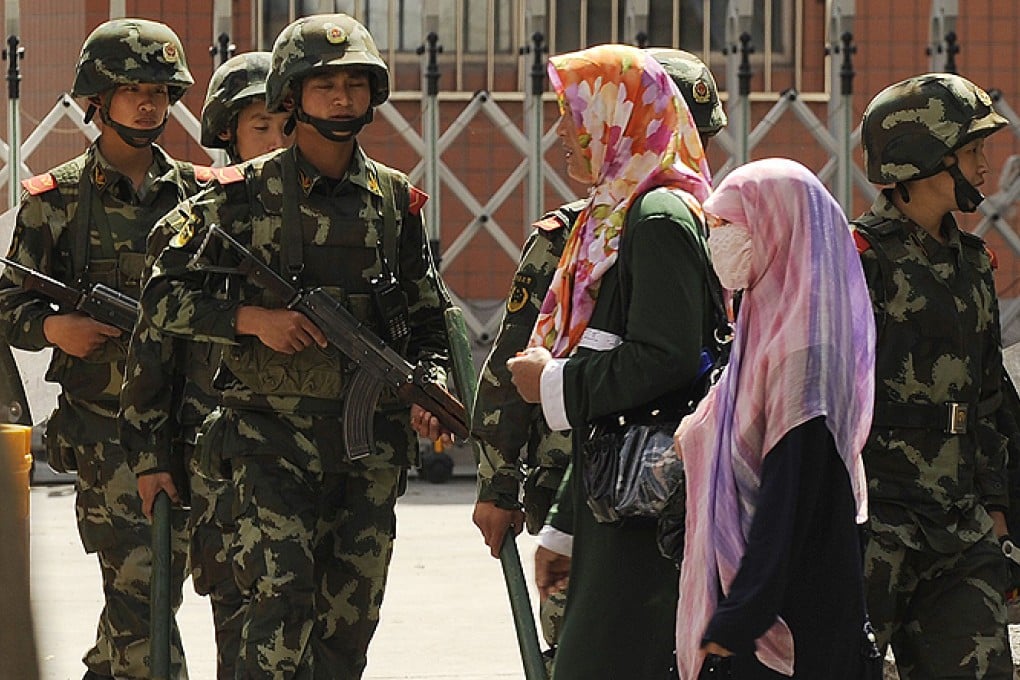New | Kashgar city boss warns against the increasing use of Islamic head coverings in Xinjiang
Zeng Cun says Kashgar is Xinjiang's 'frontline against terror' and the islamic practice of wearing full-face veils is a sign of regression from secularism

Veils and head coverings represent a cultural reverse in western China’s Xinjiang region, said the top Communist Party boss in Kashgar, the city the government describes as the “frontline” in its battle against religious extremism.
Kashgar and the surrounding areas of southern Xinjiang have suffered from some of the worst ethnic tensions in the region between the largely Muslim Uygur ethnic minority and majority Han Chinese.
Exiled Uygur groups and human rights activists say the government’s repressive policies in Xinjiang, including controls on Islam, have provoked unrest.
In some places in Kashgar from last year there are face veils and head coverings ... This is a cultural reverse.
Hundreds have died in violence in recent years, many in southern, predominantly Uygur parts of Xinjiang. The government has also blamed attacks elsewhere in China, including Beijing, on Islamist militants from Xinjiang, and said separatists there seek to set up an independent state called East Turkestan.
Some Xinjiang cities have placed restrictions on Islamic dress, including the capital Urumqi, which banned the wearing of veils in public late last year.
“We have to take strides forward as a secular, modern country,” Zeng Cun, the party secretary of the old Silk Road city of Kashgar, said on Saturday.
“But in some places in Kashgar from last year there are face veils and head coverings. This is equivalent to retreating back over the modern, secular strides we have taken. This is a cultural reverse,” Zeng said in a rare interview on the sidelines of an annual meeting of the National People’s Congress, China’s parliament.